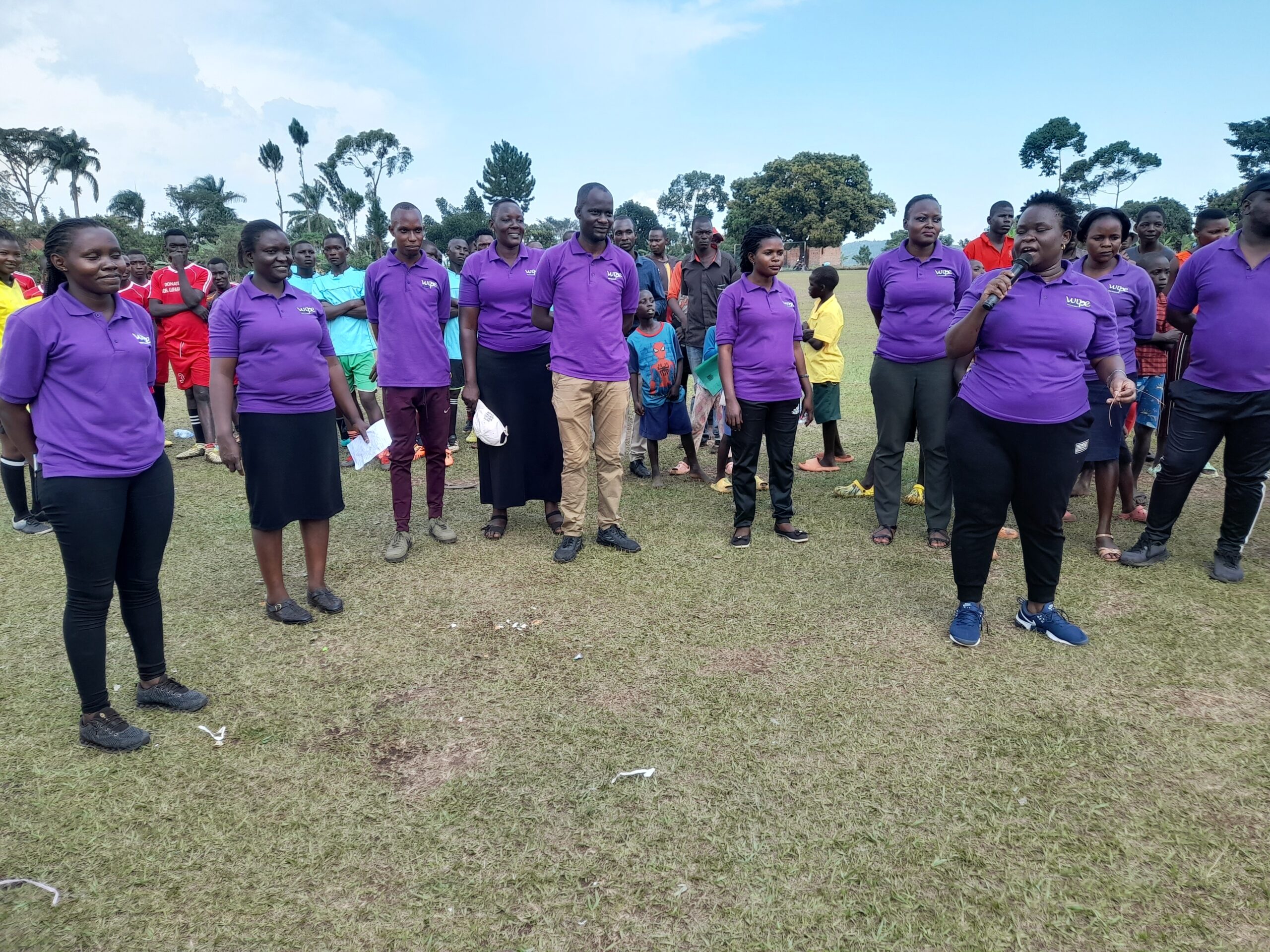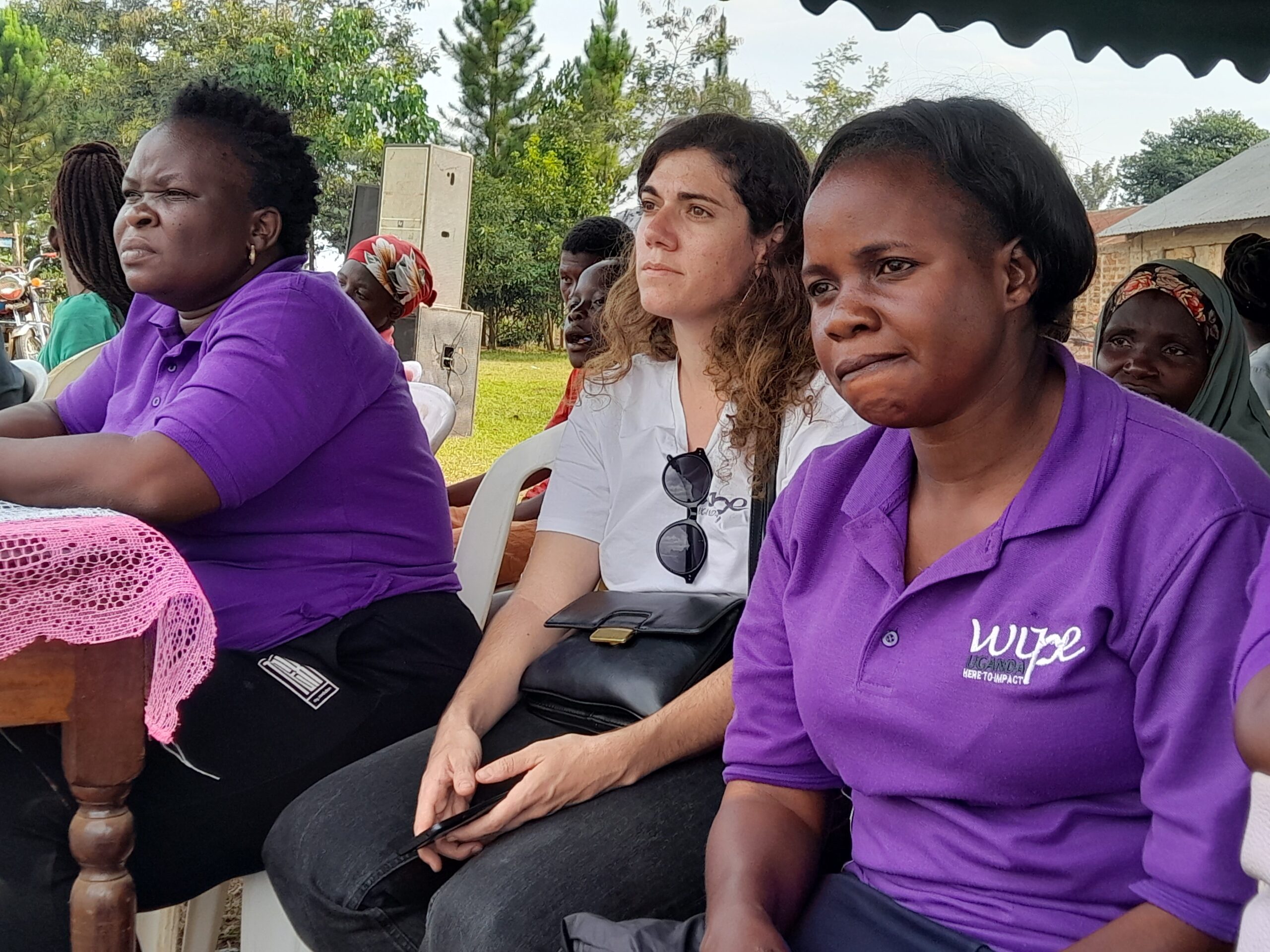Rural Women’s charity and advocacy NGO, WIPE Uganda, has urged the Ugandan government to provide support to women suffering Gender-based violence (GBV), an everyday threat for Busoga women and girls.

Addressing stakeholders during the ‘Men Engage community’ program in Busedde sub county Jinja district, OWEK Rtn. Mutesi Deborah Christine the executive director of WIPE-Uganda noted that unregulated sugarcane growing has escalated domestic violence and poverty in the region.
‘’ Due to the increased demands for land in the area for sugarcane growing, land conflicts within the region are rampant which have fueled domestic violence and family disintegration. Land is a scarce resource as far as its availability for food production is concerned. Nearly all families are engaged in sugarcane growing leaving little or no land at all for food production. Women complain that men lease out all the land leaving none to grow foods for consumption. Malnutrition levels in the region are high’’, said Owek. Deborah.

She added that children no longer attend school, and teachers experience challenges in trying to keep children in school as juveniles are assured of daily income, some see no reason to stay in school.
Owek. Mutesi advised government to ensure that the disbursement of the Parish Development Model (PDM) fund is effective in such areas to empower women.
Busoga has the biggest number of sugarcane mills and a huge acreage of sugarcane, making use of its fertile soil around Lake Victoria and Lake Kyoga coupled with good rains.
However, the persistent poverty in Busoga continues to raise questions whether cane cultivation is benefiting farmers.
Uganda Bureau of Statistics 2020 figures show that Busoga has 1.2 million poor persons of which 0.4 million are living in food poverty. Food poverty, often referred to as household food insecurity, can be triggered by a crisis in finance or personal circumstances. It encompasses both the affordability of food and its availability within local communities.
According to a study by the Economic Policy Research Centre (EPRC), Eastern Uganda particularly Busoga had the largest sugarcane milling capacity at 35%, followed by Central Uganda at 27%, Western at 26% and Northern Uganda, the new entrant in sugar milling at 12%.
EPRC report indicated that while sugarcane production has grown from about one million tons in 1961 to about five million tons by 2018, farmers in areas like Busoga continue to live in poverty. Families allegedly convert forest land to cane growing, converting more arable land meant for food production or renting out land for cane production.
Individuals that rent out their land for sugarcane growing are caught in the cycle of debt or end up selling the land to the person who initially rented.
Sugarcane prices also keep declining, impacting farmer’s incomes with the implication of poverty given that sugarcane is a perennial crop which takes over 18 months to mature. Experts suggest that for Busoga to get out of the current poverty cycle, there will be a need to diversify and find new crops for farmers other than the whole region cultivating one perennial crop.
WIPE was founded by a group of people led- Mutesi Deborah Christine in 2016, with the aim of empowering women in rural areas of Busoga sub region in order to promote social – economic self-reliance through promotion of Saving, Skills training and Sensitization.



